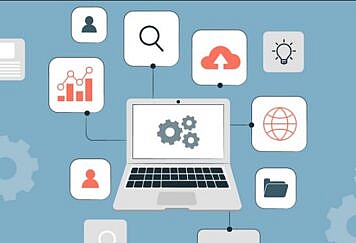Human resource management (HRM) is a critical function of every organization responsible for managing the workforce and ensuring that the employees are aligned with the organization’s goals and objectives. It encompasses a range of activities that are essential for creating a productive and engaged workforce.
This blog will define human resource management and discuss its top roles in an organization’s growth and development.
What is Human Resource Management?
Human resource management is the process of recruiting, selecting, training, and managing personnel to achieve organizational goals. It is a strategic approach to managing human capital, which involves aligning the workforce with the organization’s objectives and creating a positive and productive work environment.
Top Roles of Human Resource Management
-
Recruitment and Selection
Recruitment and selection are the core functions of human resource management. HRM is responsible for attracting, identifying, and selecting the best-fit candidates for various job roles. It involves creating job descriptions, posting vacancies, and conducting interviews to identify the most suitable candidates. HRM is also responsible for ensuring that the recruitment process is fair and unbiased and that the selected candidates meet the organization’s requirements.
-
Training and Development
Training and development are critical to ensure that employees have the necessary skills and knowledge to perform their roles effectively. HRM is responsible for designing and delivering training programs that meet the organization’s needs and objectives. It involves identifying the skills and knowledge gaps of the employees and creating training programs to address these gaps. Furthermore, HRM evaluates the effectiveness of the training programs and ensures that they align with the organization’s goals.
-
Performance Management
Performance management is the process of setting goals, monitoring progress, providing feedback, and evaluating employee performance. HRM creates a performance management system that is fair, transparent, and aligned with the organization’s objectives. It includes setting performance goals and expectations, providing feedback and coaching, and conducting performance evaluations. HRM also develops performance improvement plans and manages employee performance issues.
-
Employee Relations
Employee relations are essential for creating a positive and productive work environment. HRM manages employee relations by designing policies and procedures that govern employee behavior and conduct. It involves managing employee grievances, conflicts, and disputes and creating a workplace culture that promotes respect, diversity, and inclusion. HRM is also responsible for managing employee benefits, compensation, and rewards.
-
Compliance and Legal
HRM is responsible for ensuring that the organization complies with all legal and regulatory requirements related to employment. It involves creating policies and procedures that adhere to the relevant laws and regulations, such as equal employment opportunity, anti-discrimination, and health and safety regulations. Moreover, HRM is responsible for managing legal issues related to employment, such as employment contracts, disputes, and terminations.
If you want to gain a comprehensive understanding of the roles and responsibilities of HRM, enroll in HR certification courses. By enrolling in these courses, you can learn how to manage and motivate employees, create a productive work environment, and contribute to your organization’s success. Additionally, HR certification courses demonstrate your commitment to professional development and can lead to career advancement opportunities.
Follow TechStrange for more!





